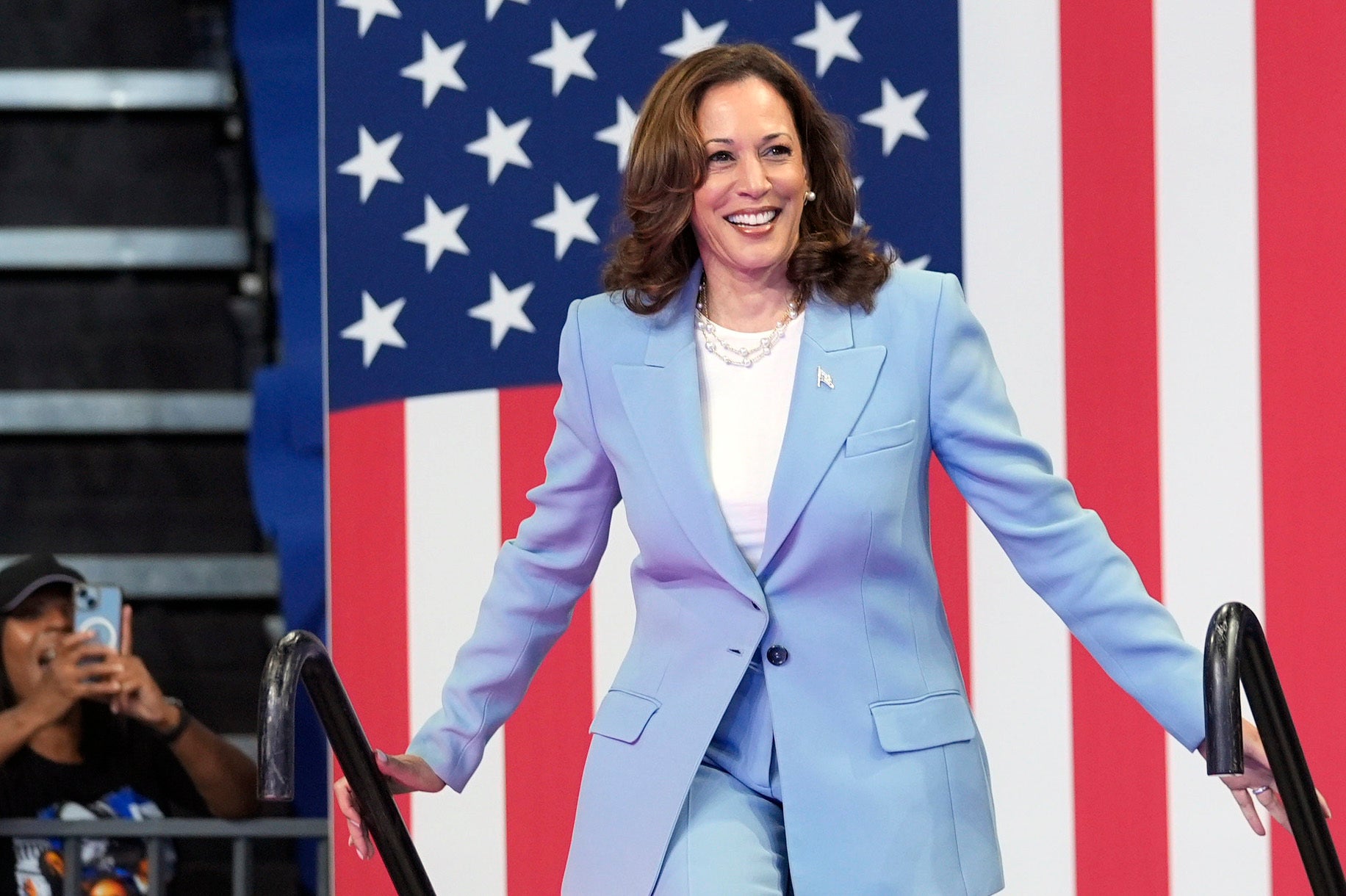
A splash in Washington before a collapse in the 2020 primaries
Kamala Devi Harris was born Oct. 20, 1964, in Oakland, California, to Shyamala Gopalan, a breast cancer scientist who emigrated to the United States from India when she was 19 years old, and Stanford University emeritus professor Donald Harris, a naturalized U.S. citizen originally from Jamaica. Her parents’ advocacy for civil rights gave her what she described as a “stroller’s-eye view” of the movement.
She spent years as a prosecutor in the Bay Area before her elevation as the state’s attorney general in 2010 and then election as U.S. senator in 2016.
Harris arrived in Washington as a senator at the dawn of the volatile Trump era, quickly establishing herself as a reliable liberal opponent of the new president’s personnel and policies and fanning speculation about a presidential bid of her own. Securing a spot on the coveted Judiciary Committee gave her a national spotlight to interrogate prominent Trump nominees, such as now-Supreme Court Justice Brett Kavanaugh.
“I’m not able to be rushed this fast,” then-Attorney General Jeff Sessions said during a 2017 hearing as Harris repeatedly pressed him on potential conversations with Russian nationals. “It makes me nervous.”
Harris launched her 2020 presidential campaign with much promise, drawing parallels to former President Barack Obama and attracting more than 20,000 people to a kickoff rally in her hometown. But Harris withdrew from the primary race before the first nominating contest in Iowa, plagued by staff dissent that spilled out into the open and an inability to attract enough campaign cash.
Harris struggled to deliver a consistent pitch to Democratic voters and wobbled on key issues such as health care. She suggested she backed eliminating private insurance for a full government-run system — “Medicare for All” coverage — before releasing her own health care plan that preserved private insurance. Now, during her nascent general election campaign, Harris has already reversed some of her earlier, more liberal positions, such as a ban on fracking that she endorsed in 2019.
And while Harris tried to deploy her law enforcement background as an asset in her 2020 presidential campaign, it never attracted enough support in a party that couldn’t reconcile some of her past tough-on-crime positions at a time of heightened focus on police brutality.
Joining Biden’s team — and an evolution as vice president
Still, Harris was at the top of the vice presidential shortlist when Biden was pondering his running mate, after his pledge in early 2020 that he would choose a Black woman as his No. 2. He was fond of Harris, who had forged a close friendship with his now-deceased son Beau, who had been Delaware’s attorney general when she was in that job for California.
Her first months as vice president were far from smooth. Biden asked her to lead the administration’s diplomatic efforts with Central America on the root causes of migration to the United States, which triggered attacks from Republicans on border security and remains a political vulnerability. It didn’t help matters that Harris stumbled in big interviews, such as in a 2021 sit-down with NBC News’ Lester Holt when she responded dismissively that “I haven’t been to Europe” when the anchor noted that she hadn’t visited the U.S.-Mexico border.
For her first two years, Harris also was often tethered to Washington so she could break tie votes in the evenly divided Senate, which gave Democrats landmark wins on the climate and health care but also constrained opportunities for her to travel around the country and meet voters.
Her visibility became far more prominent after the 2022 Supreme Court ruling that dismantled Roe v. Wade, as she became the chief spokesperson for the administration on abortion rights and was a more natural messenger than Biden, a lifelong Catholic who had in the past favored restrictions on the procedure. She is the first vice president to tour an abortion clinic and speaks about reproductive rights in the broader context of maternal health, especially for Black women.
Throughout her vice presidency, Harris has been careful to remain loyal to Biden while emphasizing that she would be ready to step in if needed. That dramatic transition began in late June after the first debate between Biden and Trump, where the president’s stumbles were so cataclysmic that he could never reverse the loss of confidence from other Democrats.

Post a Comment